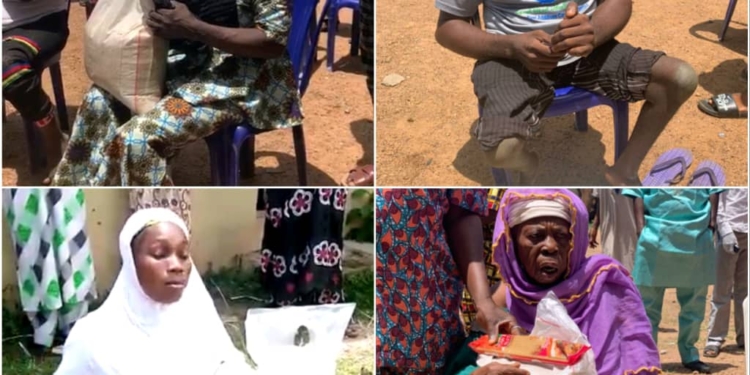The Osun State Government in its response to COVID-19 palliatives had generated almost 1.5 Billion naira (1,406,992,424.13) from individual, corporate and government donors between April – September 2020. Over forty million naira (40,712,923.96) was generated from individual donors; almost four hundred million naira (366,279,500.17) from corporate donors and 1 billion naira from other government sources.
In an audited COVID-19 cash flow statement signed by the Auditor General of the state, Folorunso Adesina, it was revealed that the Osun State Government had spent two hundred and twenty two million, two hundred and fifty four thousand, six hundred naira (222,254,600.00) on purchasing food items, between April to September 2020, to be distributed as COVID-19 palliatives to citizens across the state.
Within this period, 140,650,000 (one hundred and forty million, six hundred and fifty thousand naira) was spent on the purchase of Rice; 28,848,600 (twenty eight million, eight hundred and forty eight thousand, six hundred naira) on Beans; 39,156,000 (thirty nine million, one hundred and fifty six million naira) on Gaari and 13,600,000 (thirteen million, six hundred thousand naira) on noodles.
Of all the expenditure stated in the audited cash flow report, there was no disability disaggregated expenditure. Thus, no amount was set aside to provide palliatives specifically for Persons with Disabilities in the state.
However, the Director, Special Needs in the Osun State Ministry of Youths, Sports and Special Needs, Mrs. Taiwo Oladunjoye who confirmed that PWDs in the state were reached with food palliatives during the lockdown, could not ascertain the specific worth of palliatives that PWDs received.
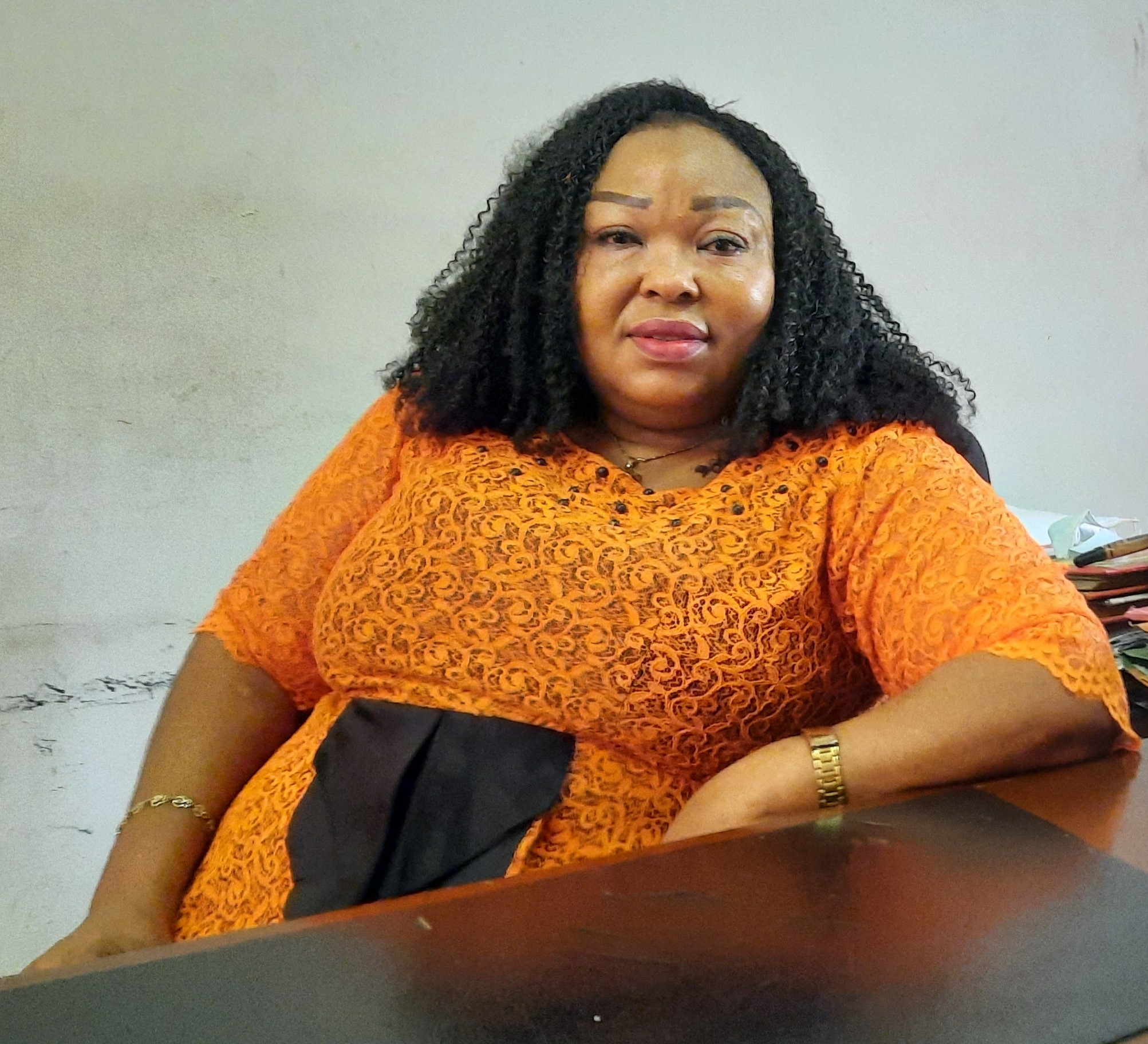
Speaking on the deployment of an established or organized platform to distribute palliatives to PWDs, the Director, Special Needs noted that there was no deliberate or specific arrangement to reach PWDs but the Joint National Association of Persons with Disabilities, JONAPWD, the umbrella body for all disability groups and clusters, was engaged.
She said, “the information was shared through the chairman of JONAPWD to the cluster heads to the various chairmen of PWDs in all the local government and they (PWDs) all went to their local government to collect palliatives.”
Mrs. Oladunjoye buttressed that, “whenever we have anything for PWDs in the state, we usually inform JONAPWD and at that time, the chairman of JONAPWD was involved. JONAPWD also has chairmen in each of the local government, so they gathered their members together and they got palliatives in all the various local governments.”
However, Kehinde Onitiju, the Chairman of the Osun State Chapter of JONAPWD, revealed that there was no deliberate effort to distribute palliatives to PWDs in the state, stressing that they were marginalized.
“There is no truth in the statement that JONAPWD was engaged in the distribution of palliatives, we were not given palliatives directly,” he explained.
Onitiju buttressed that PWDs who got COVID-19 palliatives during lockdown in the state got it by struggling like able bodied persons as there were no special arrangements by the government to reach out to PWDs.
“When my people gave me feedback about the palliatives they got at their respective local governments, what they got were so meager,” Onitiju added.
Corroborating this, Mr. Lukman Nafiu, Cluster head, People with Albinism cluster said “there was no specific arrangement to distribute palliatives to PWDs during the lockdown and as such, the impact of the lockdown as a result of the pandemic was so intense on PWDs.
“Majority of us are unemployed, depending on one way or the other to survive, so when the lockdown came, the situation became worse. By the time palliatives were being shared, there was no specific arrangement to get to us.
“We still have some of our people who got palliatives from one place or the other maybe from private organization or the government but there was no specific channel to reach out to us during the lockdown,” he added.
No Database to Cater for PWDs in Osun – JONAPWD
Making adequate provision for PWDs in Osun during the lockdown would have been seamless if there were existing database for PWDs in the state.
The JONAPWD Chairman in the state, Kehinde Onitiju said categorically that the state doesn’t have any data for PWDs.
He said, “the commissioner for Youths, Sports and Special needs requested for the database of our members and we submitted it to them, they don’t have any data.
“The data was requested around September, after we explained that we didn’t get palliatives. Even after we submitted the data, nothing has come out of it.
“If they had our data, they could have used it or at least, they wouldn’t have asked us to bring the list of our members,” he buttressed.
Onitiju said the chief of staff to the governor had requested for the database during the lockdown but nothing came out of it.
“As an individual, I was part of the team of Civil Society Organizations, CSO monitoring COVID-19 palliative distribution during the lockdown, through which I tried to make a case for PWDs but my pleas were not acknowledged.
“It was at that point that I met the Chief of Staff and I made our demands known to him. I told him we know our members and we can reach out to them if we were involved, he asked for the data that we have, I submitted it to him but no result came out of it too,” he added.
The Food relief report that was produced by the Ministry of Economy Planning and Budget detailed that a social register was deployed to reach vulnerable persons in the state.
The Social Register, according to the report, is the data of poor and vulnerable households in the state collected through Community Based Targeting CBT.
The report disclosed that, “the vulnerable people in the social register are; Physically Disabled, Deaf and dumb, Blind, Elderly, Poor Widow and Orphans.” The report also revealed that a total of 21,695 households from the social register were reached across the 31 LGAs in the state.
Information gathered from the Osun State Ministry of Economy Planning and Budget revealed that the Social Register was adopted in the distribution of palliatives because it contains the list of vulnerable persons in the state.
The Social Register was developed in 2014 with support from the World Bank and UK-DFID (now FCDO) and it is being updated on an annual basis and it is being updated on an annual basis to ensure that the details of vulnerable persons in the state are adequately captured.
Mrs. Oladunjoye affirmed that there is no disability database in the state but noted that the Ministry is working towards developing a robust database for persons with disabilities in the state, with the aim of designing adequate programmes to PWDs in the state.
Speaking on the existence of a specific quota to ensure even distribution of palliatives to PWDs, Mrs. Oladunjoye noted that there was no quota and that “heads of local government used their discretion to distribute on how they want to share the palliatives, there was no percentage.
“A percentage was allotted to vulnerable groups, which included PWDs, elderly, women etc. and PWD is just one of such category. So, there was no percentage for PWDs but officials at the local government used their discretion during the distribution.”
She also disclosed that the social register was used to reach out to vulnerable persons during the lockdown. Onitiju however noted that the social register does not represent the data of all PWDs in the state.
Onitiju said, “there is a social register in Osun, it is different from a database of PWDs. I am aware that PWDs are captured in the social register but I’m unable to verify if PWDs in the social register got the palliatives.”
An FOI request which was earlier submitted to the office of the Secretary to the State Government to ascertain the existence of a database of PWDs in the state was not honoured.
Our Exclusion Started Immediately We Were Not Part of the COVID-19 Committee – JONAPWD
Kehinde Onitiju, Chairman, JONAPWD in Osun explained that the exclusion of PWDs started immediately the Food and Relief Committee in Osun, the committee that was set up by the government to handle the covid-19 intervention programme, was constituted without the inclusion of any PWD who would have been able to present the needs of the disability community in the state.
Onitiju explained that JONAPWD’s exclusion in such a committee explained the reason there was no deliberate effort to reach out to PWDs in the state and most importantly cater for their specific needs.
“We struggled to be a part of the committee, but we were not involved in anyway and there was no specific consideration for PWDs to get palliatives that were distributed by the government.
“The palliatives were distributed at the local government level and when JONAPWD chairmen in each LGA went to their LGA chairmen to ask for palliatives. They were told that there are no palliatives for them, that they should go to the State government,” he explained.
Onitiju alleged that the distribution of palliatives became political as “the palliatives were distributed through political leaders (such as Special Advisers and Commissioners) in their constituencies.”
When probed further, Onitiju said he couldn’t ascertain if the political leaders sponsored the palliatives by themselves or they were given by the state government, but he was certain the distribution was politicized.
How Some PWDs Struggled To Receive Palliatives during Lockdown
While JONAPWD has said it didn’t secure any palliative for its members during the lockdown, some PWDs across the state have confirmed receipt of palliatives and not all of those who received the palliatives, however, got them from the State Government.
Also acknowledging the fact that some PWDs got the palliatives, Kehinde Onitiju explained that PWDs who got palliatives through various sources across the state are not more than 3% out of over 25,000 registered members of the association.
He also disclosed that the Wife of the Governor, Alhaja Kafayat Oyetola gave food items and mobility aids to PWDs after the COVID-19 lockdown.
Lateef Adetiba, Secretary, National Association of Persons with Physical Disability, NAPWPD, Osun State, explained that, “when the state government gave food to each LGA, we went to Olorunda LGA and we got 15 bags of food items.
“Each bag consists of Rice, Beans, Gaari, Noodles, sachets of Tea, Sugar, Salt, and Groundnut Oil.”
According to Adetiba, NAPWPD which is the umbrella body for persons with physical disabilities and a cluster group under JONAPWD, has about 15,000 members in the state, as its members constitute about 55% of PWDs in the state.
He however said the association cannot boast of being able to provide for its members during the lockdown.
“We had to open the bags, re-package the food items in smaller quantities and share among all those who were present at our meeting centre in Testing Ground.
“Each bag was supposed to be for one person, but we had just fifteen (15) bags and there were about 50 people who were able to make it to the meeting centre, with the expectation of getting palliatives.
“At the end of the day, everybody went home with something but it was quite ridiculous. Some could only part with just two sachets of noodles or one ‘congo’ which is equivalent to 10 milk cups, of gaari which could barely sustain them, and it was more difficult for those who have families.
“How else could we have shared the food items for fifteen persons among fifty people that it would go round? We believed it’s better for us to take a little each and manage, than leaving some people to go home without any food,” he added.
Adetiba expressed that the food items that PWDs in Olorunda LGA got was grossly inadequate, he was however grateful that they got a little compared to other locations where PWDs got nothing. Meanwhile, the State government in its food relief report had reported that seven hundred and four (704) households in Olorunda benefitted from the distribution.
Simeon Babawale Obasanjo is a Deaf man in Ejigbo who got a bag of food palliative, which according to him was made available by Hon. Israel Adekunle Oyekunle, a lawmaker representing Ejigbo constituency at the Osun State House of Assembly.
Obasanjo confirmed that he received one ‘congo’ each of beans and gaari and had to support his family by farming and building labour to cater for his family during the lockdown.
Olayisade Adeola, a 40 year old single mother of one, was one of those who got palliatives shared by NAPWPD in Olorunda LGA, she explained that the food she got barely served her and her son for one week.
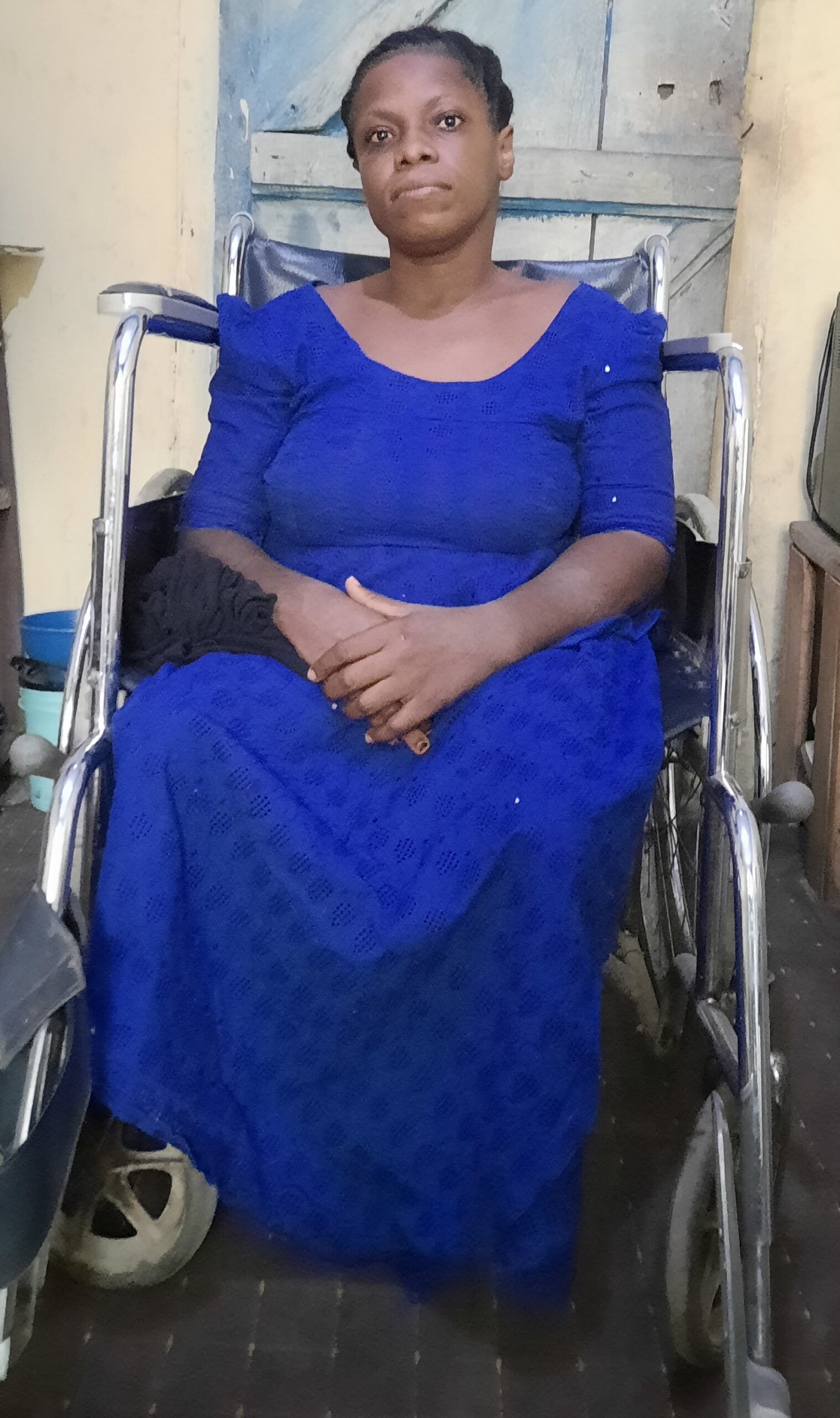
“It was a terrible period and what I could call survival of the fittest.
“The food I got was shared among other members at our centre, it couldn’t serve everyone but we had to share and make do with what was available. Many people who had high hopes before going to the centre were disappointed as they went away with almost nothing,” she narrated.
Explaining her ordeal as a single mother without any source of income during the lockdown, Olayisade said, “I faced a whole lot and the only thing I can say is that, ‘it was God’ that sustained me. It was really terrible there was nowhere to go to for support, every other person had things to sort out for themselves too.”
Also confirming the receipt of palliatives, Adebolu Eluwade, a 38 year old man with physical disability who reside in Ile-Ife, confirmed that he got one ‘congo’ of rice and beans which served him for one week.
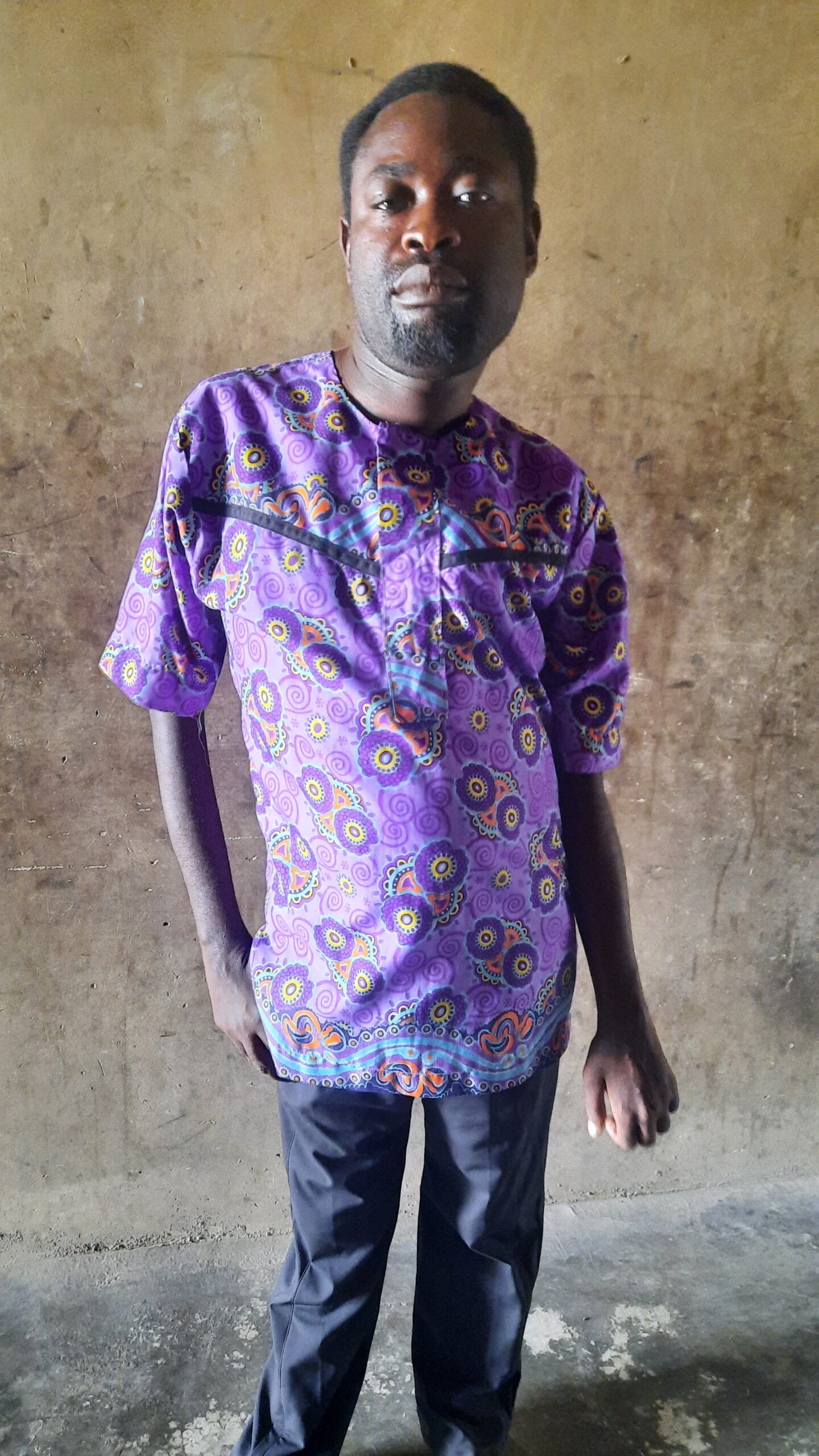
Eluwade, who is an author, explained that the palliatives distributed to PWDs by JONAPWD in Ife-East Local Government were made available by the Adeleke family and Ife Development Board.
“I am an ex-officio of JONAPWD in Ife-East LGA and I learnt that the Adeleke family and the Ife Development Board gave palliatives to PWDs. These were collated and shared among all PWDs in the LGA.
“The palliatives were distributed at the City Hall, Enuwa, close to the palace and we gathered to pick our share whenever the lockdown was relaxed.
“Since I got that palliative in May, which served me for barely one week, I’ve not gotten another one and I’ve only depended on support from my siblings and friends,” he added.
Adeosun Bose, a 30 year old wheelchair user in Esuyare, Modakeke-Ife didn’t get palliative but knew other PWDs who got palliatives, which according to her was donated by the Adeleke family.
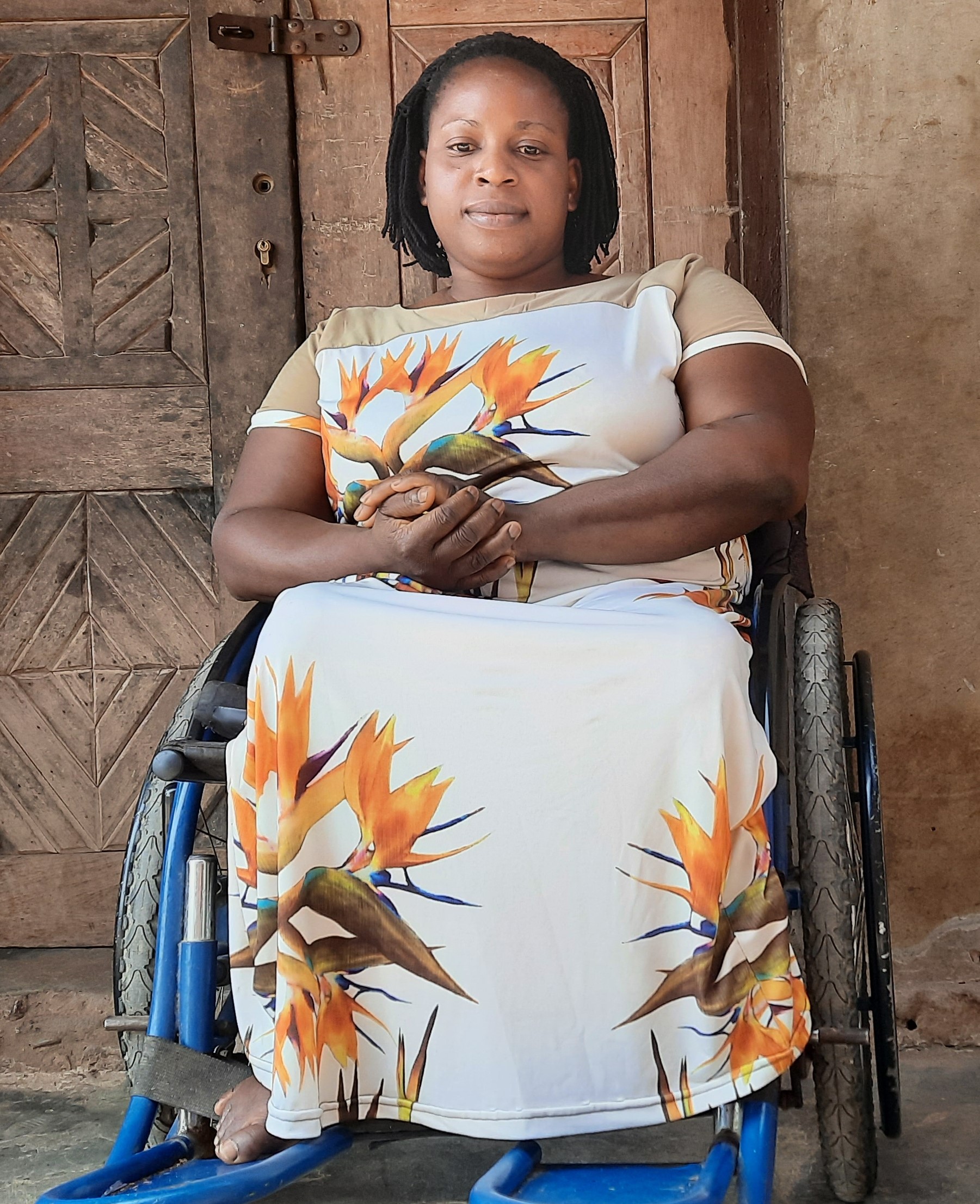
Adeosun said, “during the lockdown, I was informed by the JOANPWD chairman in Modakeke, Ife-East Area Office, that there is a bag of rice for members to share and that it was donated by the Adeleke family.
“We were asked to converge at our meeting centre in Itasin which is about 20minutes drive to my house, but I couldn’t go because of how to access the area, it was difficult moving around during the lockdown, even on the days we were allowed to move, it wasn’t easy getting transportation, so, I couldn’t go.
“Eventually, I found out people got ‘half module’, which is about 5 cups of rice. So, if I’d gone there, it wouldn’t have been worth it and not going there is not because I have much to eat, I can say things were really difficult at that time.”
Without making a mockery of those who donated the palliatives, Adeosun said, “the Adeleke family did their best by giving food items to PWDs, what about the government that didn’t acknowledge our existence or make any provision for us. “I’m certain if the government had distributed palliatives for us and we shared everything together, it would have gone a long way,” she added.
Despite Exclusion From Palliatives, PWDs Also Excluded From COVID-19 Survival Funds Scheme
Some PWDs in the state have complained about not receiving the post COVID-19 survival fund despite being captured. They believed that if they couldn’t get the palliatives, they should be able to get the survival fund which would help them recover from the adverse economic impact of the pandemic.
Onitiju narrated that, “we were told about the post COVID survival funds and 50 PWDs were selected to be part of the programme where we would receive 500,000 naira loan but none of us has received a penny.
“They opened UBA account for us and asked us to pay 1000 each for ‘Omoluabi card’ before we could get the fund. No single person within the disability community has received the fund but some people without disabilities are already receiving the funds.
“We shouldn’t be excluded at this stage again, the government should ensure that we get the loan,” he added.
Mrs. Oladunjoye however confirmed that the first batch has received the survival fund and that a few PWDs received from the first batch.
She disclosed that the survival fund is being executed by the Federal Government, but assured that PWDs and other beneficiaries would receive the fund.
“It is at the Federal level that the payment would be done, but the capturing was done by the banks here in Osun.
“Very soon, they will start receiving money through the accounts that were opened for them.”
Mrs. Oladunjoye also mentioned that PWDs benefitted from the Conditional Cash Transfer as well as the World Bank grant that was disbursed during the lockdown.
This report was facilitated by the Wole Soyinka Centre for Investigative Journalism (WSCIJ) under its Free to share project.

